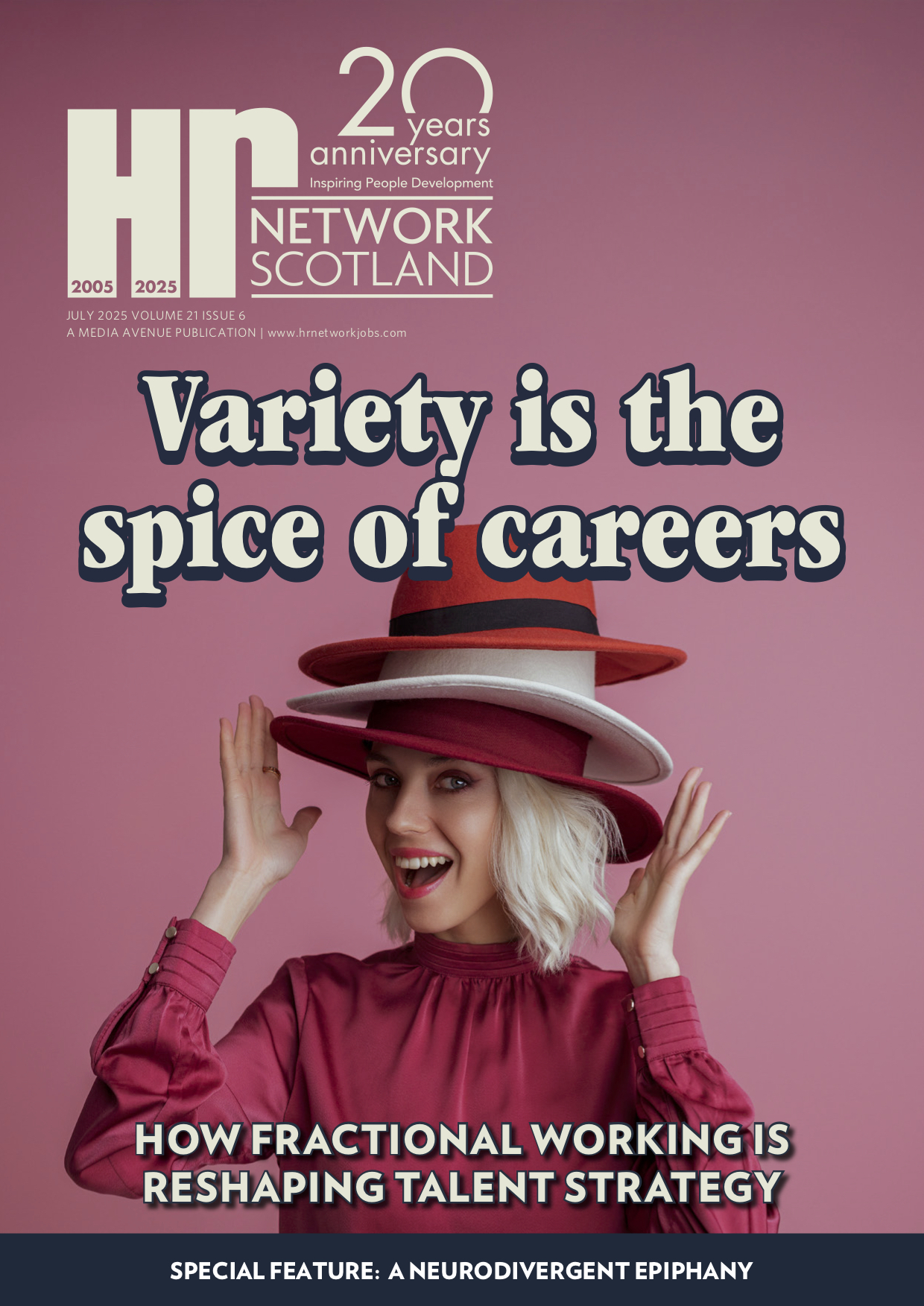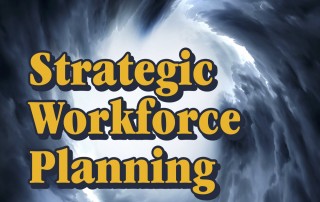Our Latest News
AI assessments skew recruitment processes as applicants try to ‘please the machine’
AI assessments skew recruitment processes as applicants try to ‘please the machine’

Candidates who think they are being assessed for a job by AI will highlight their analytical capabilities and downplay more intuitive or emotional qualities because they believe they’ll gain a better score, according to new research from Rotterdam School of Management, Erasmus University (RSM).
According to Dr Klesse and co-researchers PhD candidate Jonas Görgen and Dr Emanuel de Bellis, organisations must take greater care when designing and communicating AI assessment tools to avoid unintentional biases. “The finding that people strategically highlight certain capabilities or characteristics implies that candidates present a skewed picture of who they really are,” said Dr Klesse.
By simulating a job selection process and documenting how applicants presented themselves either to AI or human assessors, the researchers were able to document how such behaviour can have consequences for who gets selected – or rejected – for a position. “If your organisation uses AI in hiring, promotion, or evaluation, you should be aware that these tools do more than just change the process.
They may also influence who gets the job,” Dr Klesse says. To avoid candidates feeling pressured to present an adjusted impression of themselves, Dr Klesse suggests to:
- Be transparent about your use of AI and the criteria it employs when assessing candidates.
- Audit your AI assessment systems regularly for behavioural distortions. Have you noticed that the kind of people selected by your AI appear to have changed their behaviour? You may be creating a narrower talent pool and an unintended bias in your selection process.
- Inform your recruitment or hiring or admissions teams that candidates may change their behaviour when they know that they are assessed by AI. This awareness can help ensure you don’t miss out on great candidates who might present themselves differently under AI-based evaluation.
The researchers conducted 12 studies with over 13,000 participants recording on how people behaved (or said they would behave) when they were assessed by AI compared with a human assessor in real and simulated assessment settings. They also collaborated with a Rotterdam-based start-up that offers competency-based and fair hiring software that doesn’t use AI. The start-up surveyed applicants after they completed the application process, and the results indicate that candidates indicated to have changed their behaviour if they thought they were assessed by AI.
The researchers’ findings have broader implications as AI becomes more involved in decisions about people’s lives and futures. It is vital, they say, to also understand the human side of the equation. Using AI assessment tools does not only improve efficiency or help organisations to cut costs, it changes people’s behaviour. Understanding these subtle behavioural changes is essential to fully grasp the consequences of outsourcing assessment to AI.
OUT TODAY – July 2025 Issue of Hr NETWORK Magazine
OUT TODAY – July 2025 Issue of Hr NETWORK Magazine
VARIETY IS THE SPICE OF CAREERS: How Fractional Working Is Reshaping Talent Strategy
Can fractional working contribute to more fulfilling careers and a skills-enriched organisation? For HR, it isn’t just a trend, but a strategic opportunity. Andy Moore discovers how leaders can manage this increasingly popular people practice.
Also in the latest issue:
- Introducing the sponsors of Hr NETWORK National Awards 2025
- Full review of the Hr NETWORK National Conference & Exhibition 2025
- The regular sections of the magazine include: News, STATS and EXTRA
- The ‘Insights’ section features first class comment from those in the know on a range of subjects including: Reward & Recognition, AI & Change Management, Sustainable Accessibility and Building Governance Around AI
Click the front cover below to read the latest issue:
When to expect peak job searching seasons and how to prepare
When to expect peak job searching seasons and how to prepare
While many businesses may be looking to fill roles ahead of summer, expert insight suggests now might not be the most effective time to run a recruitment drive. Experts at SEFE, energy trading career specialists, have analysed seasonal job search trends and shared guidance on when employers are likely to get the best response from candidates—plus why September could offer a golden opportunity.
When recruiting new staff, there will always be times of the year when you receive more applications and times when you receive fewer. As a recruiter, this can be frustrating and can leave you wondering where you’re going wrong. The good news is that we have the data to help you make informed decisions when you publish a job description.
The findings might surprise you!

When are search volumes highest?
Search volumes are highest during the early months of the year. In February and January, employees are likely looking for a new start—something that’s reflected in search data. Recruiters might benefit from putting job descriptions out at this time. However, more applications doesn’t always mean better ones. Hiring at this time of year can be time-consuming, as quantity may outweigh quality.
What about September and October?
These months are also strong for job search activity—often driven by graduates entering the workforce or professionals reassessing their roles after summer. This period can strike a good balance: there’s still solid search volume, but the market isn’t as saturated as in January.
When are search volumes lowest?
The quietest period is the run-up to Christmas. But that’s not necessarily a bad thing. Fewer applications often mean more serious candidates—those who are ready to make a move, not just testing the waters. And with the added financial pressure of the festive season, people may be more driven to secure new roles before the year ends.
New research reveals the strange side effect of remote working
New research reveals the strange side effect of remote working
“I work with them every day – but I wouldn’t recognise them in Tesco”

It turns out working together every day doesn’t mean you’d recognise someone in real life. According to new research from online entertainment platform Slotozilla, a staggering 43% of Brits admit they wouldn’t confidently recognise one or more of their own colleagues if they passed them in public – despite regularly speaking to them on video calls.
The study lifts the lid on a bizarre but growing problem in post-pandemic work culture: the breakdown of real-world visual memory.
Key findings include:
- 43% said they wouldn’t be able to pick some colleagues out of a line-up
- 22% admitted they’ve already mistaken a co-worker for someone else in person – and just went along with it
- 1 in 3 said they’ve never seen their teammate’s full body on screen, only their head and shoulders
- 36% work in teams where the default is “camera off” – meaning they’ve never actually seen what people look like
- And worryingly, 64% said they’ve Googled or LinkedIn-searched a colleague before an in-person meeting – just to be sure they’d recognise them
“We’re all navigating this strange new era of digital familiarity,” said a spokesperson for Slotozilla, which often explores human behaviour in online environments. “It’s easy to feel like you know someone – but remove the screen, and that connection can vanish instantly. It’s like we’ve built entire relationships in 2D.”
Methodology: The survey was conducted by Slotozilla in May 2025 using an independent polling panel of 2,000 UK-based adults who work in remote or hybrid jobs. Participants were asked about their recognition of colleagues, video call habits, memory of visual cues, and whether they’ve experienced awkward in-person moments after months of digital-only contact.
Failing to adapt and offer flexibility to employees leads to burnout
Failing to adapt and offer flexibility to employees leads to burnout
 Companies that fail to adapt and offer flexibility to their employees can lead to long-term decline, finds new research by Aalto University School of Business. The study, conducted by researcher Nikolina Koporcic-Nietola and her colleagues, explored the effects of a static approach on companies and found that it leads to employee burnout.
Companies that fail to adapt and offer flexibility to their employees can lead to long-term decline, finds new research by Aalto University School of Business. The study, conducted by researcher Nikolina Koporcic-Nietola and her colleagues, explored the effects of a static approach on companies and found that it leads to employee burnout.
Employees of companies that are stagnant can experience emotional exhaustion, cynicism, and a diminished sense of personal accomplishment. These symptoms can lead to decreased productivity, increased absenteeism, and higher turnover rates, ultimately affecting a company’s performance and bottom line.
“Effective burnout management depends heavily on leadership empathy, open communication, and a supportive organisational culture. Leaders play a pivotal role in shaping the mental health of employees and facilitating burnout prevention and reintegration,” says Nikolina Koporcic-Nietola.
Burnout is a progressive condition that requires proactive measures to avoid compromising employee health and organisational performance. By managing burnout effectively, companies can, not only improve employee well-being but also maintain business competitiveness, reduce turnover, and ensure long-term organisational success.
The study was published in the Industrial Marketing Management Journal.
OUT TODAY – May 2025 Issue of Hr NETWORK Magazine
OUT TODAY – May 2025 Issue of Hr NETWORK Magazine
STRATEGIC WORKFORCE PLANNING: Transforming turbulence into tailwinds
Future-proofing your team so it’s fit for the modern business landscape depends on Strategic Workforce Planning (SWP). But how do HR practitioners get the best value from it? Andy Moore discovers why the “strategic” part is so important…
Also in the latest issue:
- NOMINATIONS PREVIEW for Hr NETWORK National Awards 2025
- Keynote Speakers CONFIRMED for Hr NETWORK National Conference & Exhibition 2025
- The regular sections of the magazine include: News, STATS and EXTRA
- The ‘Insights’ section features first class comment from those in the know on a range of subjects including: Financial Wellbeing; Gender Balance; The Workforce Readiness Gap; Social Media Monitoring









